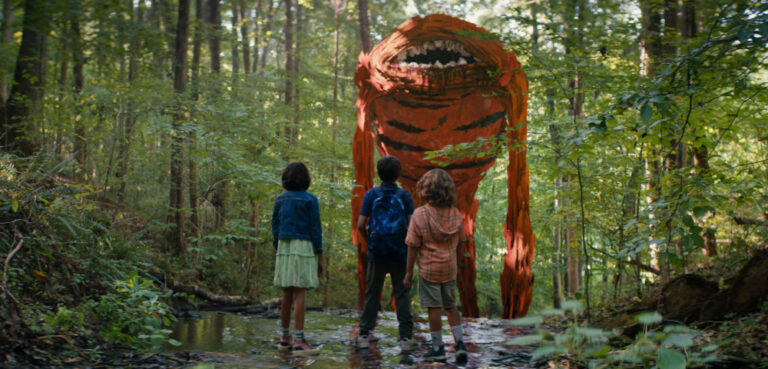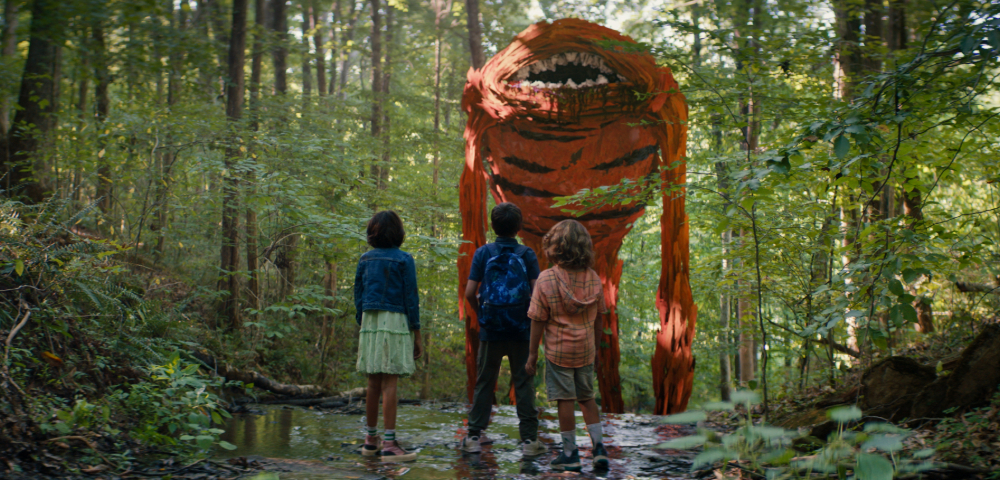
Sorry, Video Game Movies And TV Shows Still (Mostly) Suck

Have you noticed there’ve been a lot of movies and TV shows based on video games coming out lately? When you consider the fact that the video game industry made almost $455 billion dollars last year alone, and that there are an estimated 3.32 billion people across the globe who play games, it’s no huge shock that Hollywood wants a piece of that pie.
It’s no secret that early attempts to translate video games to live action were pretty poor, as studios seemed outright allergic to respecting the source material – see campy misfires like Super Mario Bros. or the Resident Evil series, which has very little to do with the games they’re based on.
Yet as time has gone on, more games have been adapted and the general sentiment is that they’re much better than they used to be. After all, games themselves have become much more cinematic in their storytelling. Surely they’re finally solid grounds to adapt into a film or TV show?
As you might’ve guessed by now, I don’t really think so. The problem with most video game movies and TV shows is this: they do not respect the fact that games are their own artistic form, and think they can simply transplant the story into the structure of a movie or show. By excising the interactive element of a game’s story, you fundamentally change it, and very few adaptations of games ever replace it with something substantial.
The dire state of video game movies
Video game movies in particular remain a rather dire scene. April was particularly rough thanks to Until Dawn and A Minecraft Movie, the former being a deeply misguided spin-off from and the latter one of the worst films I’ve ever seen.
Though the two are vastly different, they share a similar flaw in their failure to properly adapt the experience of playing their respective games to film. A Minecraft Movie doesn’t even try, avoiding a sense of creativity at all costs to supplant the aesthetic of its uber-popular game onto a generic kind of fantasy adventure.
Meanwhile, Until Dawn makes the misguided effort of trying to incorporate the external player experience of the game into a story completely unrelated to its already cinematic source material. In the game, you can go back and change your choices to see if more characters survive, but that’s not part of the game’s story – it’s your experience as a player.
This is the thing that frustrates me about adaptations. Video games aren’t just made because their creators couldn’t make a movie or show; games are made because the potential for interactive storytelling is entirely unique. That’s why games like Until Dawn can basically just be a playable horror movie, because the interactivity creates a new experience. If you remove that element and only replace it with a completely nonsense story, all you have is hollow mimicry that pleases no one.
Video game TV doesn’t fare much better
TV shows that adapt video games either loosely or faithfully fare a bit better, but I personally think are still pretty disastrous. In theory, TV is much better suited to adapting games than movies given how much more time you have in a season of television, but I’d argue the results are pretty average.
Despite the critical acclaim it received, I think that The Last of Us season 1 is perfectly representative of how little respect there is for games as an art form when adapting them. As a game, The Last of Us has a reputation for being very ‘movie-like’ – comparisons to watching a season of TV have been around since it came out. And while those comparisons are relatively fair, this analysis oversimplifies the impact that The Last of Us’ store derives from actually being a game.
Both the show and the game tell the story of Joel and Ellie making their way through post-zombie apocalypse America, but the difference between the two feels startlingly obvious. In the game you are Joel, and it’s up to you to save Ellie from zombies or fight off a group of bandits; in the show you only watch him and Ellie’s relationship (when it’s not doing hour-long flashbacks that undercut the story). Once again the interactivity is removed, but nothing is brought in to fill the void it leaves in the story.
Ironically, it feels like video game TV feels best when it’s not actually adapting the game it shares a name with. See Cyberpunk: Edgerunners, an excellent anime by Studio Trigger that’s set in the same world as the CD Projekt Red game Cyberpunk 2077, but doesn’t directly adapt it.
That’s not a guarantee for success, though. Arcane started out strong in its first outing but inevitably ended in a calamitous second season that got much worse the more it leaned into being an adaptation of a video game. Meanwhile, other animated shows like Castlevania and Devil May Cry feel too irony-poisoned to sincerely grapple with why people like these games to begin with. It makes the disrespect for the original works as interactive experiences feel so palpable.
Can we ever make good video game movies and TV shows?
So where do we go from here? Ideally, we stop making video game movies and TV shows entirely. We have three decades of evidence that they don’t work, bar some notable exceptions (I didn’t like the first Sonic movie, but apparently the other two are solid). But Hollywood obviously won’t throw in the towel when there’s money to be made, and when so many adaptations are on the way…
So in lieu of giving up on the prospect entirely, my advice to any filmmakers is to actively embrace the feeling of playing a game when making a movie. Action movies have been becoming slowly more gamified for years, with franchises like John Wick capturing what playing a game feels like more than any adaptation.
I still think game adaptions are an inherently flawed venture. Games are simply unlike any other art form, no matter how cinematic they try to be – they literally do not function without you. But maybe, just maybe, if video game movies and TV shows treat us with the same respect as a game does, it’ll feel better to put down the controller.









